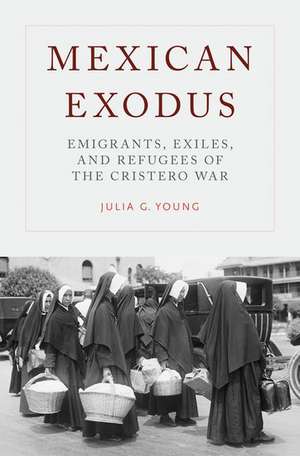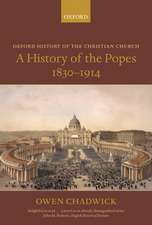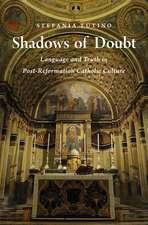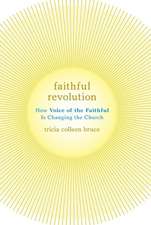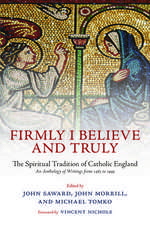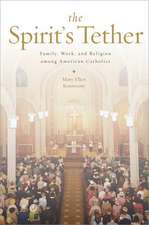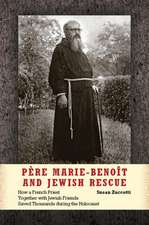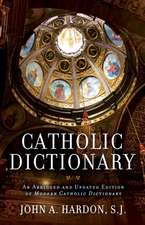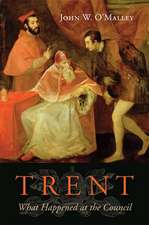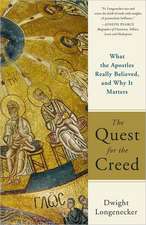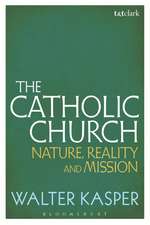Mexican Exodus: Emigrants, Exiles, and Refugees of the Cristero War
Autor Julia G. Youngen Limba Engleză Hardback – 17 sep 2015
| Toate formatele și edițiile | Preț | Express |
|---|---|---|
| Paperback (1) | 215.32 lei 10-16 zile | |
| Oxford University Press – 31 ian 2019 | 215.32 lei 10-16 zile | |
| Hardback (1) | 590.96 lei 31-37 zile | |
| Oxford University Press – 17 sep 2015 | 590.96 lei 31-37 zile |
Preț: 590.96 lei
Preț vechi: 789.79 lei
-25% Nou
Puncte Express: 886
Preț estimativ în valută:
113.07€ • 118.07$ • 93.38£
113.07€ • 118.07$ • 93.38£
Carte tipărită la comandă
Livrare economică 04-10 aprilie
Preluare comenzi: 021 569.72.76
Specificații
ISBN-13: 9780190205003
ISBN-10: 0190205008
Pagini: 288
Ilustrații: 16 illus.
Dimensiuni: 231 x 157 x 28 mm
Greutate: 0.43 kg
Editura: Oxford University Press
Colecția OUP USA
Locul publicării:New York, United States
ISBN-10: 0190205008
Pagini: 288
Ilustrații: 16 illus.
Dimensiuni: 231 x 157 x 28 mm
Greutate: 0.43 kg
Editura: Oxford University Press
Colecția OUP USA
Locul publicării:New York, United States
Recenzii
With Mexican Exodus, Julia G. Young offers an outstanding contribution to the fields of Mexican migration, the Cristero war and Mexican American Catholicism. In this concise, clearly written text, Young chronicles the activities of Mexican emigrants who supported from afar the Cristero war, a 1926-9 rebellion by militant Catholics against an anticlerical Mexican government [...] essential reading for students of the Cristero war and Mexican migration to the United States.
Scholars frequently note that a hemispheric approach is necessary to grasp the full significance of diasporic events. Now we have such a study for Mexico's Cristero Rebellion. Mexican Exodus interweaves intriguing anecdotes with superb analysis to examine the lives of Cristeros who crossed over to the United States, the fellow migrants who resisted their cause, and government and church officials on both sides of the border who intervened.
Mexican Exodus provides a welcome transnational history of Mexico's Cristero Rebellion. On one hand, it reveals how Mexican Catholic exiles in the U.S. worked to influence the religious situation back home as propagandists, smugglers, and Borderlands fighters. On the other, it makes a suggestive argument concerning the importance of cristero activism to Mexican-American identity formation. The diasporic focus is original and fresh: Young tracks patterns of cristero militancy along migrant routes and through multiple Borderlands encounters, showing how a nationalistic crusade was, paradoxically, key to imagining a 'greater Mexico.'
This fascinating story of a Catholic diaspora in the U.S. impresses us with the sophistication of its transnational frame and with the acuity of its insights into both Mexican politics and the development of Mexican American communities, even as it delights and moves us with its personal stories and colorful vignettes.
Scholars frequently note that a hemispheric approach is necessary to grasp the full significance of diasporic events. Now we have such a study for Mexico's Cristero Rebellion. Mexican Exodus interweaves intriguing anecdotes with superb analysis to examine the lives of Cristeros who crossed over to the United States, the fellow migrants who resisted their cause, and government and church officials on both sides of the border who intervened.
Mexican Exodus provides a welcome transnational history of Mexico's Cristero Rebellion. On one hand, it reveals how Mexican Catholic exiles in the U.S. worked to influence the religious situation back home as propagandists, smugglers, and Borderlands fighters. On the other, it makes a suggestive argument concerning the importance of cristero activism to Mexican-American identity formation. The diasporic focus is original and fresh: Young tracks patterns of cristero militancy along migrant routes and through multiple Borderlands encounters, showing how a nationalistic crusade was, paradoxically, key to imagining a 'greater Mexico.'
This fascinating story of a Catholic diaspora in the U.S. impresses us with the sophistication of its transnational frame and with the acuity of its insights into both Mexican politics and the development of Mexican American communities, even as it delights and moves us with its personal stories and colorful vignettes.
Notă biografică
Julia G. Young is Assistant Professor in the Department of History at The Catholic University of America.
